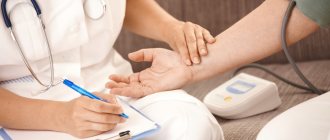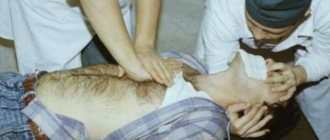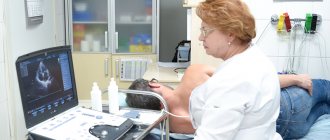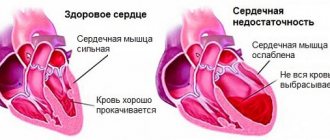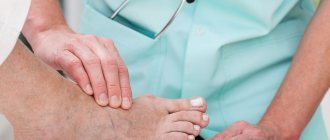The natural physiological state of “sleep” occurs every 24 hours throughout a person’s life. Its entire period covers 5 stages and begins with “slow”. At first, a person is drawn to sleep, then brain activity decreases, and internal processes slow down.
Your heart rate changes during sleep. During the dreaming period, the body is cleansed, tissues and organs are restored, and energy accumulates. This means that healthy sleep makes the necessary reboot of the entire body for the next day’s activity.
What affects a sleeper's heart rate?
Pulse is one of the types of biomarkers, relying on its indicators to determine the general condition of the human body. At the time of sleep, jerky oscillations in the artery decrease, the functions of the cardiovascular system slow down, and metabolic processes weaken. Cells require less oxygen.
This process regulates the activity between organs, some are stimulated, others, on the contrary, arrive in complete relaxation. Heart rate and intensity are affected by:
- gender identity;
- age;
- physical state.
The more trained a person is, the lower the heart rate reduction. For men, the difference is considered to be in the range of minus 5-10 beats. In children, compared to the older generation, pulsation increases by 25-30 beats/minute.
Reasons for changing frequency
Changes in heart rate are provoked by certain physiological conditions:
- drinking alcohol, coffee drinks, certain medications;
- hard physical labor and training in sports complexes;
- emotional impulses (experience, fear, fright, joy, stress).
A hot climate changes body temperature and causes an increased heart rate. At night, biorhythms slow down by 1.5 times, and at 4 am the lowest parameters are observed. This is due to the functioning of the vagus nerve, which suppresses the functioning of the cardiovascular system. The pulse during sleep in an adult can reach up to 30 beats/minute. Most often, the risk of a heart attack occurs between 4 and 6 hours.
Important! It is necessary to pay attention to the number of beats per minute on the left and right hands; if they differ, it means that blood circulation in the limbs is impaired.
The body gradually enters a state of rest, the brain sends signals about the upcoming rest. Before going to bed, the pulse ranges from 55-60 beats/minute, but this is if the person falling asleep is in a non-irritated state and does not have heart disease. Complete peace occurs in the first phase of the dream and in the early morning, the frequency of pulse vibrations is low.
Heart rate slows down slightly before bed
Signs and warning signs
Conditions when you need to pay attention to your health and immediately consult a doctor:
- the appearance of shortness of breath (I can’t breathe);
- noise in the ears, cranium;
- dizzy;
- it becomes dark in the eyes;
- there is weakness up to loss of consciousness;
- heartache.
You must immediately call an ambulance, and while waiting for it you must:
- free the patient’s neck and chest from tight clothing;
- provide air access to the patient (open the window);
- apply cold to your forehead, rinse your face with very cold water.
Normal for an adult during sleep
Wakefulness is a stage of life with high activity of organs, tissues, and cells. Everything is in a running mechanism, the pulse is actively beating. Rest and dreaming are the opposite of wakefulness, which implies a weakening of all sources of energy in the body.
The process of slowing down arterial impulses begins to be observed at the moment a person is sent to the kingdom of Morpheus. Studies by medical scientists have found that during wakefulness the pulse should be 8-10% stronger than at rest. However, everything depends on other factors: age, gender, psychological and physical aspects.
Impact on heart rate of sleep phases
Human behavior during the day has several phases that replace each other and thereby affect the pulse. At night the same thing happens, depending on the sleep phase (there are 5 in total), the pulse changes. The intensity varies from highest to lowest, and vice versa.
In the first four phases of the dream, gradual relaxation and deepening of sleep occurs. The heart muscle begins to contract more slowly, and the pulse also slows down. This is the majority of normal sleep, approximately 80%.
Fifth stage of sleep
The phase is a parameter of REM sleep, when a person dreams, at this time physiological processes change. In particular, an emotional reaction occurs that provokes cardiac impulses with an increase in the frequency of beats per minute. It is even possible to exceed normal levels of wakefulness.
Also in this phase, other physiological processes can be launched:
- increased breathing;
- sweating;
- body movement.
This also provokes an increase in pulse impulses. If you are not dreaming or the person is dreaming with pictures of a calm genre, the pulse will be stable throughout the night, without fluctuations. If we talk about the ideal pulse, then 70 beats/minute is the most favorable indicator that confirms the normal heart rate of a healthy person.
Israeli scientists believe that a decrease in heart rate during sleep increases the risk of death several times. Their verdict is that you can live with this frequency of contractions for only 7 years.
Numerous studies prove that people with extra pounds, obesity, diabetes, and hypertension are susceptible to slowing down their heart rate.
Increased heart rate during sleep
Reducing the impulses of the cardiovascular system during rest is considered natural for a healthy person. Medical experts confirm the dependence of heart rate rhythms on the effectiveness of sleep, its depth and quality.
In most cases, sleeping people see dreams in color or black and white. Beautiful and pleasant dreams periodically change to nightmares, which affect the nervous system. The result may even be a jump in blood pressure. But this is not the only thing that affects the quality of dreams.
Tachycardia in the morning
Heart rate fluctuations during sleep can also cause:
- changes in the functioning of the thyroid gland;
- prolonged stress and depression;
- impaired blood circulation;
- slagging of the body and intoxication;
- internal bleeding;
- lack of water in the body.
Tachycardia harms proper sleep, causing anxiety with possible headaches and pressing pain in the chest.
Diagnostic methods
The main methods for diagnosing nocturnal tachycardia are:
ECG
The main method for detecting nocturnal tachycardia is to take an ECG. Performed when you first seek medical help.
An ECG helps to study the work of the myocardium during the day and exclude the presence of daytime heart rhythm disturbances
Holter cardiogram
To document the fact of nocturnal tachycardia when a person goes to bed gives a chance to take a Holter electrocardiogram. The mobile device is attached to the patient for a day. A Holter ECG will not only detect nocturnal palpitations, but will also make it possible to determine its type and severity.
Echocardiogram
Another name is ultrasound of the heart. Allows you to “see” on the screen all the structures of the heart: chambers, valve apparatus, vessels. The functioning of the endocrine glands is checked using blood biochemistry, ultrasound of the thyroid gland, and pancreas.
Indicators after waking up
The morning hours are the calmest, the time when people wake up in a peaceful state. But the pulse, both in adults and in children, is observed to be rapid. This is a completely normal situation due to a sudden awakening. After 5-10 minutes, the pulse beats normalize and stabilize.
After waking up, the body's functions switch to daytime mode and begin their activity. If the pulse quickens, this may be the result of restless dreams, which are most often caused by stress, anxiety, emotional arousal, or indicate cardiac problems responsible for blood circulation.
Cardiologists do not recommend a sharp rise to a vertical position; this puts a lot of stress on the heart muscle. Natural recovery consists of a gradual awakening; after waking up completely, you need to lie down for a few minutes to restore cardiac functions.
There are situations when, after waking up, weak pulse beats are observed. In order to raise them to a normal level, they do morning exercises and yoga. A pulse of 40 beats per minute is a reason to consult a doctor.
Athletes and those who are actively involved in physical education have larger hearts than those who are indifferent to training. This is due to the fact that the heart is a muscular organ. With moderate loads, it increases in size, as a result, it safely pumps blood, which normalizes blood pressure. The most important thing is that it strengthens the entire cardiovascular system.
Why does it become more frequent?
During sleep, when the brain is active, people often see colorful dreams. These can be either good dreams or nightmares. It is because of them that the heart rate increases. There is probably no person who has not at least once woke up in a cold sweat with a rapid heartbeat. It happens that because of nightmares, a person is thrown out of sleep when falling asleep, and at the same time his pulse increases.
Seeing this kind of dream can increase not only your pulse, but also your blood pressure. By waking up and lying down for a few minutes, trying to relax, you can reduce your heart rate to normal. A high pulse during sleep in an adult indicates that either you had some kind of vivid dream and your brain began to work actively, or you have diseases of the cardiovascular system, and even in sleep the heart does not slow down, but works actively .
Heart rate may also increase at night due to the following reasons:
- dysfunction of the thyroid gland;
- anemia;
- nervous emotional state for a long time;
- poisoning;
- heart failure;
- internal bleeding;
- dehydration.
When a person suffers from colds or infectious diseases, his body temperature rises. This is the body’s protective reaction to an external aggressor – microbes. By increasing body temperature, the body tries to destroy viruses and microbes, and in this condition the pulse will increase during sleep. A high heart rate at night often leads to insomnia, since it is quite difficult to fall asleep with a strong heartbeat. This phenomenon can be triggered by regular nervous tension, insufficient rest, conflicts in the family or at work, physical fatigue, abuse of medications or harmful substances.
High rhythm after sleep
Both adults and children often experience a high heart rate in the morning after sleep. But a little time passes - 10-15 minutes, and the pulse rhythm begins to return to its normal norm. This condition is considered quite common in a healthy person. The body wakes up, and gradually all systems begin to work. Jumping right out of bed puts a sharp strain on the heart, so doctors recommend lying down for 10 minutes after waking up to normalize your heart rate after sleep.
It is extremely rare that after waking up, a decreased pulse may be observed; to increase it, it is enough to do light morning exercises.
The heart is a muscle like all the others in the body, and it simply needs constant moderate physical activity. Light exercise in the morning will keep the heart muscle toned and normalize its rhythm.
An increased heart rate after sleep indicates that either the person had a restless sleep due to nervous experiences, or it is worth checking their cardiovascular system with a cardiologist. To lower your heart rate, it is recommended to lie quietly for a few minutes and try not to think about the bad and the things of the next day.
How to measure a sleeping person's pulse
There are several ways to check the pulse rate of a sleeping person. The first is the traditional pressing of the fingers on the wrist and counting the number of blows. You can ask a close relative who will measure your pulse in different phases of sleep.
Another way is a modern heart rate monitor device with a built-in alarm clock. Its functions are to count the rhythmic beats of the arteries. During sleep, the device reads various indicators related to the body:
- reflects the position;
- draws up schedules;
- records sleep phases and number of beats.
A heart rate monitor is a device that allows you to measure your heart rate during sleep.
Then it analyzes all the collected data and determines a favorable time to wake up, which gives a signal to the built-in alarm clock to vibrate. The “heart rate monitor” is a great way to determine the quality of sleep and check the functioning of the cardiovascular system at rest. These are also analytical system indicators that reflect the health of a sleeping person.
Baby's pulse in sleep
A growing child's body develops with significant differences in pulse rate between daytime and evening. To determine the accuracy of a child’s pulse, you should measure pulse impulses at the same time for two days. To do this, the child is put to bed and the pulse is checked during the dream, relying on the following points:
- Measurement of pulse beats on both wrists - the indicators should be the same. If there are deviations, this indicates a circulatory disorder or is a sign of a disease.
- If a child has a high temperature due to a cold, then this factor must be taken into account when measuring; pulse vibrations will be much more frequent.
Age-related changes also affect the heart rate, which affect many processes in the body of babies. First you need to compare your pulse during the day, then take a measurement at night. Your heart rate should be lower during sleep.
Average normal heart rate values for children during sleep
The average values for parents' orientation when measuring children's pulse at night are given:
| Child's age | Impact range/minute | Average beats/minute |
| from 1 to 3 months. | 100-155 | 120 |
| from 4 to 12 months. | 90-150, | 110 |
| 2 years | 82-140 | 105 |
| 3 years | 80-120 | 90 |
| 4 years | 78-118 | 90 |
| 5 years | 75-110 | 85 |
| 6 years | 75-90 | 84 |
| 7 years | 75-82 | 78 |
| from 8 - 9 years | 73-78 | 76 |
| from 10 -11 years | 70-75 | 73 |
Treatment
It is a common situation when cardiac pathology is the basis of the nightly “pranks” of the pulse. In this case, treatment aimed at getting rid of cardiac pathology will help. The main goal of therapy is to reduce the number of attacks and their severity. Indeed, in the presence of myocardial pathology, a violation of the rhythm of contractions gradually turns into a factor aggravating heart disease.
When the cause of night attacks is high blood pressure, the doctor prescribes antihypertensive drugs and determines the dose individual for the patient. As a rule, the evening dosage of the medication is increased. If the issue is sleep apnea, then everything is more complicated. Therapeutic measures in relation to it have a weak effect.
In all cases, doctors advise sleeping on your side. But sleeping people usually do not control the position of their own body in their sleep. For this reason, the only effective method is the use of special devices for ventilation. Such gadgets pressurize oxygen through a mask into the lungs of those sleeping.
To prevent your tongue from closing your windpipe at night, you can lose excess weight and cure ENT pathology. One hundred percent option: the doctor selects a gadget that fixes the position of the lower jaw while you sleep. Straining, changing body position, and taking a hot-cold shower will help quickly (but not for long) make tachycardia disappear.
Psychotherapy
The trigger for an increase in heart rate at night can be a mental injury, after which the patient wakes up for a long time, attacked by panic attacks. A qualified psychotherapist will help eliminate this problem. Beta-blockers and sedatives are indicated as medications.
General recommendations for nocturnal tachycardia - normalize sleep, increase the overall tone of the body
